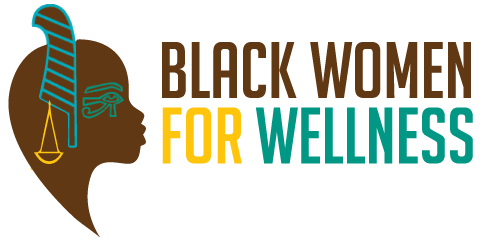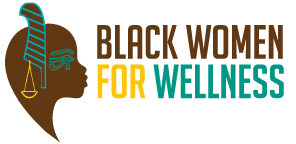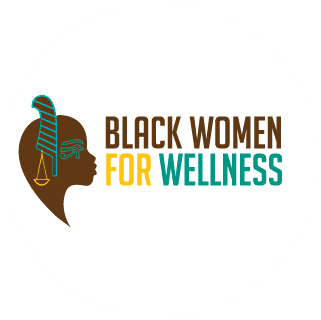The Wangari Maathai Environmental Justice Award Presented to Martha Dina Argüello
Every Step We Take: Martha Dina Argüello Honored for Making Strides in Global Environmental Justice
Human progress is neither automatic nor inevitable… Every step toward the goal of justice requires sacrifice, suffering, and struggle; the tireless exertions and passionate concern of dedicated individuals. – Martin Luther King Jr.
Black Women for Wellness (BWW) is honoring Martha Dina Argüello on Saturday, March 8th at its International Women’s Day Food & Wine Tasting and Award Ceremony. The event, Every Step We Take, will acknowledge excellence in leadership for activists defending women’s issues on the international landscape and celebrate cultural diversity in a food tasting spectacular featuring dishes created from international inspiration.
BWW chose Argüello, Executive Director of Physicians for Social Responsibility-Los Angeles (PSR-LA), to receive the “Wangari Muta Maathai” Environmental Justice Award because of her 32 years of serving in the non-profit sector as an advocate, community organizer and coalition builder. The award is named after the Kenyan human rights and environmental justice advocate best known for the Green Belt Movement which assisted women in planting more than 20 million trees on their farms and on schools and church compounds in order to conserve the environment and improve their quality of life.
While working as a health educator in the 1990s, Argüello realized that although early detection can prevent death from breast cancer, it does not prevent breast cancer, which has been increasingly linked to the exposure of environmental toxicants. Since that realization, Martha has dedicated her career to the environmental justice movement, and has lectured nationwide on the use of precautionary principle policies. “Looking at the intersection of environmental justice and reproductive health and justice is important,” Argüello states, “because reducing exposure to toxic chemicals in our environment will have a great impact on the health of women and girls.”
BWW recently had the pleasure to interview the 2014 International Women’s Day award recipient.
How do you define Environmental Justice?
“EJ is environmental racism. We need to call out what’s happening with poor and low-income communities and people of color and the general outlook that they are disposable and challenge the idea that their health is less important than the economic gains of companies and institutions that are responsible for toxic chemicals in our environment. From a health perspective, health disparities and inequalities are definitely related to environmental toxicants.”
What do you think is the intersection of EJ with reproductive justice and/or women’s health/issues?
“Many chemicals – air pollutants, chemicals in personal and everyday products, toxic release from refineries, chemicals used in oil extraction and fracking, just to name a few – impact our health. But our communities are treated as a massive experiment. Some of these chemicals are endocrine disruptors and affect the reproductive health of women and men. Hispanic, African-American, and Asian/Pacific Islander mothers experience higher levels of air pollution and were more than twice as likely to live in the most polluted counties.”
Why is it important to think globally while acting locally?
“Locally, we need to engage and organize our communities and demand that public agencies make preventing harm a priority. At the city-level, we need more information about the contamination in our communities and ensure that as the city pushes more development that we are not building homes, schools or growing our food on contaminated land. At the state level and national level we have to keep up a constant drumbeat that people’s health is worth protecting.”
The award is named after Wangari Mute Maathai…does this award have any special meaning for you?
“Yes, she is a great inspiration. I met her on her book tour when she came to Los Angeles. We share a mentor David Chatfield who helped her get one of her first jobs in the field. He was my co supervisor in my first job working on pesticides and health issues 15 years ago.”
What accomplishment are you most proud of so far?
“I am proud of the programs that we’ve built at PSR-LA and the alliances we have created. I am particularly proud of the partnership we have developed with Black Women for Wellness to address the intersection of reproductive justice and environmental health. I’m really proud of the work of my co- worker, Ana Mascareñas , on the issues of toxic flame retardants.”
How does the work of PSR-LA influence the global lives of women and girls?
“One example is our work to eliminate the unnecessary use of highly toxic flame retardant chemicals. These chemicals make their way into the bodies of women and girls and because they migrate through our ecosystem, they end up concentrating in our food. I met women in Alaska who traditional way of life and indigenous diets are threatened because these flame-retardants bio accumulate in their food systems and then in their bodies, including in breast milk. So making couches fire safe without chemicals can be done and doing so may mean that indigenous women in Alaska can protect their health and traditional culture.”
BWW’s International Women’s Day event – Every Step We Take – will be held at the Los Angeles Turner Center in Westchester from 5pm until 8pm. For more information on sponsorships, tickets or program ad placements please contact Willie Duncan at [email protected] or 323.290.5955.
Black Women for Wellness is a multi-generational, membership-based organization committed to the well-being of Black women and girls by building healthy communities through health education, empowerment and advocacy. For more information, please visit www.bwwla.org
PSR-LA is a physician and health advocate membership organization working to protect public health from nuclear threats and environmental toxins. Representing over 5,000 physicians, health professionals, and concerned residents in Southern California, we inform the medical community and policymakers about toxic threats, promote safer practices and strengthen local community organizations to engage in meaningful public health and environmental advocacy. http://www.psr-la.org/




